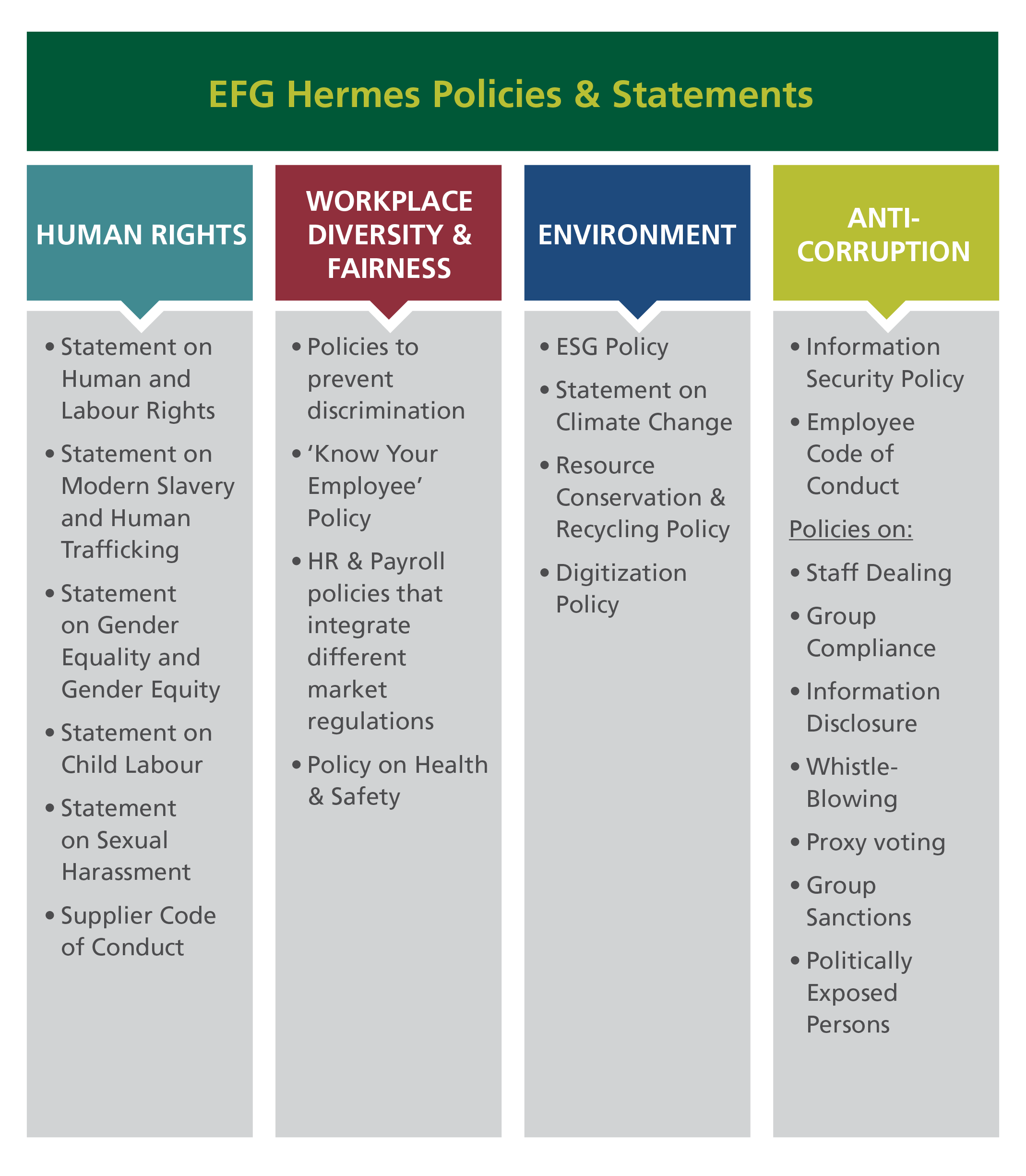
THE ESG POLICY ECOSYSTEM
EFG Hermes stands as a regional leader in the corporate governance realm, a position it has earned through its rigorous rules and procedures that the Group’s staff follows during their everyday operations. Prudent management and corporate frameworks have been at the heart of its success over the years and continue to play a central role as the Group evolves.
Since 2017, the Group has implemented a new Corporate Governance Framework that addresses new country-specific policies and works to blend EFG Hermes’ group-wide strategy with the more focused subsidiary development programmes. The new framework provides the grounds for efficient decision-making across the entire organization and guarantees a high degree of accountability to ensure that all shareholders and clients have their investments handled in a responsible and professional manner. The framework sets out the minimum standards expected Group-wide while complying with local laws or regulations for an even higher level of stringency.
The Group’s Corporate Social Responsibility (CSR) department is responsible for initiating and coordinating all ESG-related initiatives. In 2021, the Board of Directors, together with the CSR department and business line representatives, issued an update for the ESG Policy. The update was made publicly available on our website and addresses several issues including, ESG guidelines for business lines; stewardship and engagement; exclusionary criteria, capacity building and reporting.
In addition to the overarching ESG Policy, EFG Hermes has issued a suite of policies and statements that make clear its proactive approach to human rights, the environment, anti-corruption and other critical ESG-related issues. Our Internal Audit (IA) Department monitors the implementation of all policies and troubleshoots issues as they happen thanks to a system of spot checks combined with systemic reviews undertaken by the IA team with the help of internationally recognized internal audit management software that allows for more effective internal audit processes through the automatization of auditing procedures.
